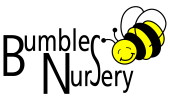Early Years Foundation Stage
Early Years Foundation Stage
The early years foundation stage (EYFS) sets standards for the learning, development and care of your child from birth to 5 years old
Within the EYFS Framework judgements are based on the seven areas of learning: 3 Prime Areas and 4 Specific Areas.
Prime
●Communication and Language
●Physical Development
●Personal, Social and Emotional Development
Specific
●Literacy
●Mathematics
●Understanding the World
●Expressive Arts and Design
The Prime Areas
Communication and Language
Listening and attention: children listen attentively in a range of situations. They listen to stories, accurately anticipating key events and respond to what they hear with relevant comments, questions or actions. They give their attention to what others say and respond appropriately, while engaged in another activity.
Understanding: children follow instructions involving several ideas or actions. They answer ‘how’ and ‘why’ questions about their experiences and in response to stories or events.
Speaking: children express themselves effectively, showing awareness of listeners’ needs. They use past, present and future forms accurately when talking about events. In childminding settings, the key person is the childminder. that have happened or are to happen in the future. They develop their own narratives and explanations by connecting ideas
or events.
Physical Development
Moving and handling: children show good control and co-ordination in large and small movements. They move confidently in a range of ways, safely negotiating space. They handle equipment and tools effectively, including pencils for writing. Health and self-care: children know the importance for good health of physical exercise, and a healthy diet, and talk about ways to keep healthy and safe. They manage their own basic hygiene and personal needs successfully, including dressing and going to the toilet independently.
Personal, Social and Emotional Development
Self-confidence and self-awareness: children are confident to try new activities, and say why they like some activities more than others. They are confident to speak in a familiar group, will talk about their ideas, and will choose the resources they need for their chosen activities. They say when they do or don’t need help.
Managing feelings and behaviour: children talk about how they and others show feelings, talk about their own and others’ behaviour, and its consequences, and know that some behaviour is unacceptable. They work as part of a group or class, and understand and follow the rules. They adjust their behaviour to different situations, and take changes of routine in
their stride.
Making relationships: children play co-operatively, taking turns with others. They take account of one another’s ideas about how to organise their activity. They show sensitivity to others’ needs and feelings, and form positive relationships with adults and other children.
The Specific Areas
Literacy
Reading: children read and understand simple sentences. They use phonic knowledge to decode regular words and read them aloud accurately. They also read some common irregular words. They demonstrate understanding when talking with others about what they have read.Writing
Writing: children use their phonic knowledge to write words in ways which match their spoken sounds. They also write some irregular common words. They write simple sentences which can be read by themselves and others. Some words are spelt correctly and others are phonetically plausible.
Mathematics
Numbers: children count reliably with numbers from 1 to 20, place them in order and say which number is one more or one less than a given number. Using quantities and objects, they add and subtract two single-digit numbers and count on or back to find the answer. They solve problems, including doubling, halving and sharing. Shape, space and measures: children use everyday language to talk about size, weight, capacity, position, distance, time and money to compare quantities and objects and to solve problems. They recognise, create and describe patterns. They explore characteristics of
everyday objects and shapes and use mathematical language to describe them.
Understanding the world
People and communities: children talk about past and present events in their own lives and in the lives of family members. They know that other children don’t always enjoy the same things, and are sensitive to this. They know about similarities and differences between themselves and others, and among families, communities and traditions.
The world: children know about similarities and differences in relation to places, objects, materials and living things. They talk about the features of their own immediate environment and how environments might vary from one another. They make observations of animals and plants and explain why some things occur, and talk about changes.
Technology: children recognise that a range of technology is used in places such as homes and schools. They select and use technology for particular purposes.
Expressive Arts and Design
Exploring and using media and materials: children sing songs, make music and dance, and experiment with ways of changing them. They safely use and explore a variety of materials, tools and techniques, experimenting with colour, design, texture, form and function.
Being imaginative: children use what they have learnt about media and materials in original ways, thinking about uses and purposes. They represent their own ideas, thoughts and feelings through design and technology, art, music, dance, role-play and stories.
The EYFS emphasises that parents are a child’s primary educator and therefore encourages parents to contribute to their child’s learning.
Assessments
Your child’s progress will be reviewed when they’re between 2 and 3 years of age. This will be carried out by your child’s Key Carer (Nursery Practitioner). Your child’s Health Visitor will also carry out an assessment at this age. Your child’s Key Carer and Health Visitor will
have a professional discussion to share information regarding your child’s develop and assessment outcomes.

